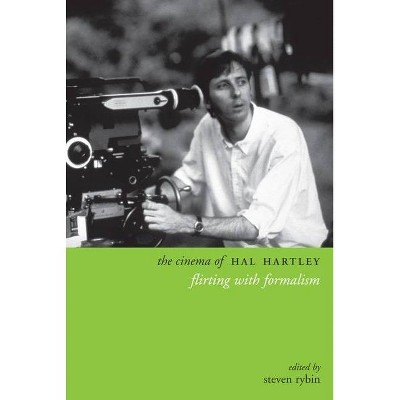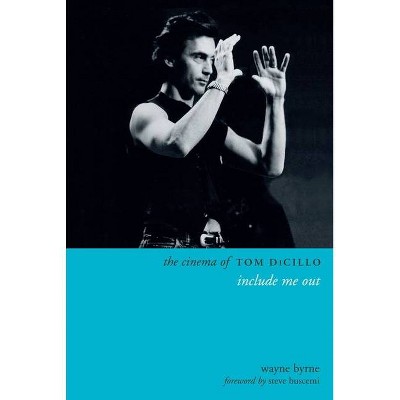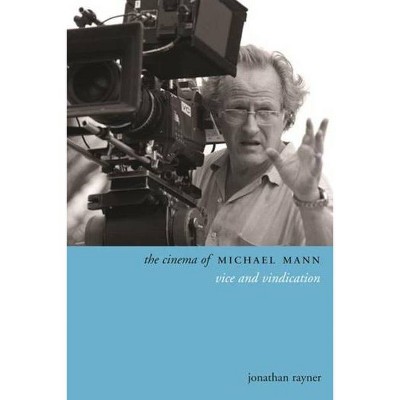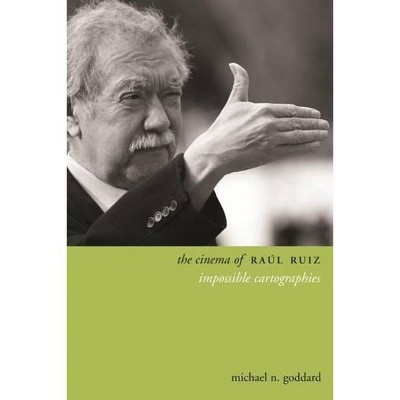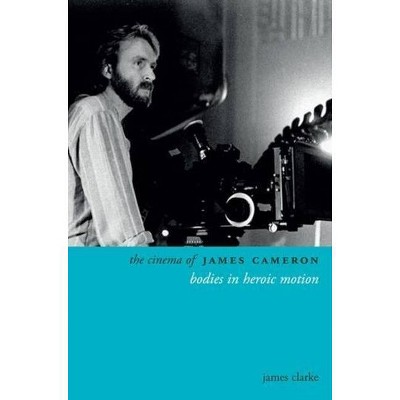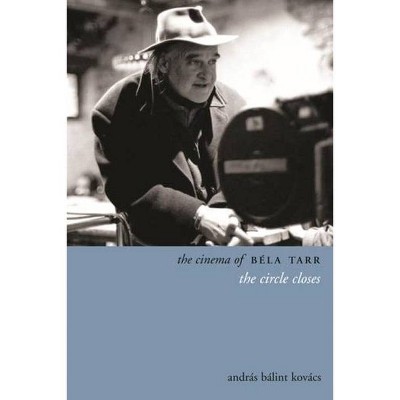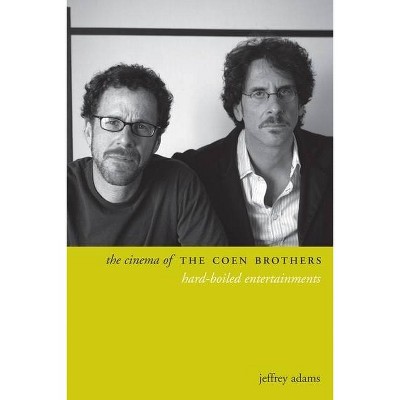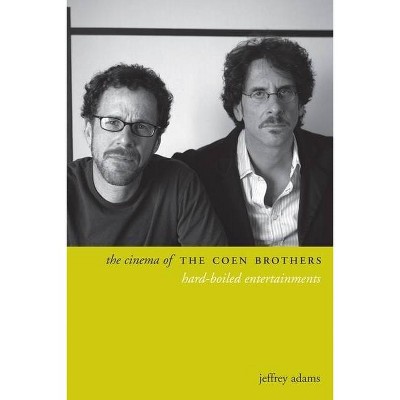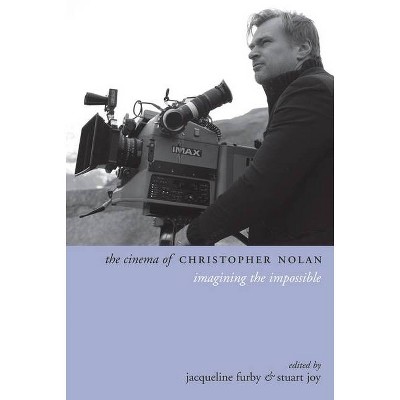The Cinema of Paolo Sorrentino - (Directors' Cuts) by Russell Kilbourn (Paperback)
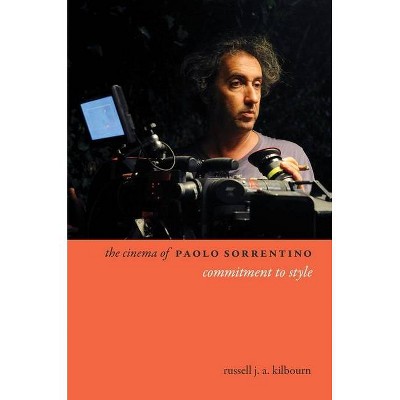
Similar Products
Products of same category from the store
AllProduct info
<p/><br></br><p><b> About the Book </b></p></br></br>Paolo Sorrentino has emerged as one of the most compelling figures in twenty-first-century European film. This book is a critical examination of Sorrentino's work, focusing on his emergence as a preeminent transnational auteur.<p/><br></br><p><b> Book Synopsis </b></p></br></br>Paolo Sorrentino, director of <i>Il Divo</i> (2008) and <i>The Great Beauty</i> (2013) and creator of the HBO series <i>The Young Pope</i> (2016), has emerged as one of the most compelling figures in twenty-first-century European film. From his earliest productions to his more recent transnational works, Sorrentino has paid homage to Italy's cinematic past while telling stories of masculine characters whose sense of self seems to be on the brink of dissolution. Together with his usual collaborators (including cinematographer Luca Bigazzi and editor Cristiano Travagliolo) and actors (chief among them Toni Servillo), Sorrentino has produced an incisive depiction of the contemporary European condition by means of an often spectacular postclassical style that nevertheless continues postwar Italian film's tradition of political commitment. <p/>This book is a critical examination of Sorrentino's work, focusing on his emergence as a preeminent transnational auteur. Russell J. A. Kilbourn offers close readings of Sorrentino's feature films and television output from <i>One Man Up</i> (2001) to <i>The Young Pope</i> (2016) and <i>Loro</i> (2018), featuring in-depth analyses of the director's exuberant and intensified film style. Addressing the crucial themes of Sorrentino's output--including a masculine subject defined by a melancholic awareness of its own imminent demise, and a critique of the conventional cinematic representation of women--Kilbourn illuminates Sorrentino's ability to suffuse postmodern elegies for the humanist worldview with a sense of social awareness and responsibility. Kilbourn also foregrounds Sorrentino's contributions to the ongoing transformations of cinematic realism and the Italian and European art cinema traditions more broadly. The first English-language study of the acclaimed director's oeuvre, <i>The Cinema of Paolo Sorrentino</i> demonstrates why he is considered one of the most dynamic figures making films today.<p/><br></br><p><b> Review Quotes </b></p></br></br><br>I highly recommend this book. It is a treasure trove of material and insight: assiduously researched, built upon minute observation, and grounded in important issues around Sorrentino and contemporary transnational cinema and media. It will be a touchstone for Sorrentino studies, setting a very high bar for its successors--Frank Burke, Queen's University "Italian Studies "<br><br>This elegantly written book is the first extensive study in English of Italy's leading contemporary director. It places Sorrentino more firmly on the Anglophone film-critical map, and offers an insightful reading of each of his films. Kilbourn is also incisive on the politics of the auteur that have elevated Sorrentino internationally and on his films' sometimes problematic gender politics. As such, this book is a welcome and thorough examination of Sorrentino as an intermedial and transnational auteur, and will be required reading for all those interested in contemporary Italian cinema.--Catherine O'Rawe, author of <i>Stars and Masculinities in Contemporary Italian Cinema</i><br><br>With each new film, the need for a book capable of bridging the local and global and of accounting for the problematic aspects of Sorrentino's aesthetic has become ever more pressing. That need has now been met. Film by film, Kilbourn maps and explains Sorrentino's evolving aesthetic with great dexterity, clarity, and intellectual rigor, making a strong case for Sorrentino's status as one of the most important cinematic artists of our age. This book is invaluable for newcomers and specialists alike and will undoubtedly become an essential touchstone for all future studies of the director.--Alex Marlow-Mann, University of Kent<br><br><i>The Cinema of Paolo Sorrentino</i> will be a touchstone for future work on the director. Nothing of the sort exists that engages with Sorrentino's entire oeuvre. Kilbourn writes in a lively, clear, and engaging tone, translating concepts from a wide array of fields in a very accessible fashion. The astute and highly original analyses of Sorrentino's films will make important contributions to film genre studies, discourses around auteurism, and the stakes of transnational cinema.--Dana Renga, author of <i>Mafia Movies: A Reader</i><br><p/><br></br><p><b> About the Author </b></p></br></br>Russell J. A. Kilbourn is professor of English and film studies at Wilfrid Laurier University. His books include <i>Cinema, Memory, Modernity: The Representation of Memory from the Art Film to Transnational Cinema</i> (2010) and <i>W. G. Sebald's Postsecular Redemption: Catastrophe with Spectator</i> (2018).
Price History
Cheapest price in the interval: 30.49 on November 8, 2021
Most expensive price in the interval: 30.49 on December 20, 2021
Price Archive shows prices from various stores, lets you see history and find the cheapest. There is no actual sale on the website. For all support, inquiry and suggestion messages communication@pricearchive.us
